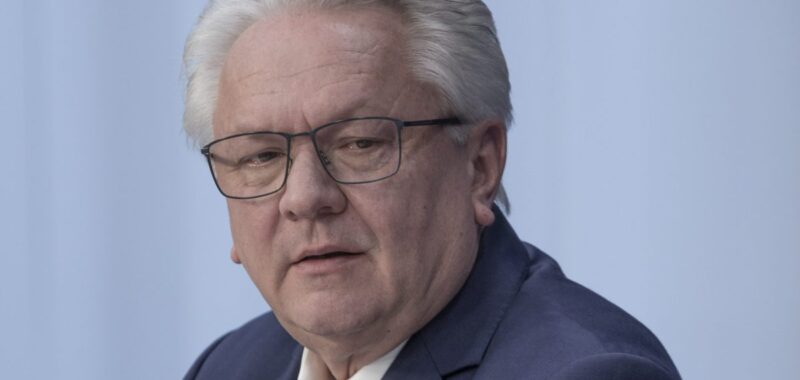As 2024 came to an end, the German arms contractor Rheinmetall was toasting an order book that had reached a record €55 billion ($63 billion). In five years’ time, that sum will look like pocket change, provided its CEO’s ambitions come anywhere close to being realized.
Armin Papperger, Rheinmetall’s CEO, is bullish on the company’s outlook as it rides a wave of European rearmament. Speaking to German outlet Handelsblatt, Papperger said he expected orders to hit €300 billion ($340 billion) in the next five years, equivalent to around a 450% increase. Meanwhile, he forecasts U.S. sales to double from the current figure of €1 billion ($1.1 billion) over that time period.
Papperger’s optimistic spending outlook is incumbent on a newly hawkish Europe upping the ante on defence spending. The bloc recently committed to spend around €800 billion ($910 billion) on defense. Papperger, though, thinks this figure could be closer to €1 trillion ($1.1 trillion).
Papperger’s German bet
Germany partially abandoned safeguards that ensured fiscal prudence in March, namely excluding defence spending from its strict debt brake that aims to keep the country’s annual budget deficit below 0.35% of GDP. In addition to a €500 billion infrastructure investment pledge, the country’s commitment to fresh defence spending could see the country shell out more than €1 trillion ($1.3 trillion) of spending in the coming years.
Because of Germany’s early aspirations of making an outsized commitment to defense spending, Papperger expects his company to play a bigger role in European rearmament. Historically, Rheinmetall has accounted for 18% of defense orders across Europe. Papperger is forecasting that share will increase to 25%, providing the basis for his blockbuster prediction on Rheinmetall’s order book.
Markets weren’t moved by Papperger’s comments to Handelsblatt, who likely already have a strong future backlog figure priced into their assessment of Rheinmetall’s value. Indeed, shares in the company have already risen more than 140% this year, having increased by 1,000% since Russia’s invasion of Ukraine.
In addition to fresh aggregate demand across Europe, Rheinmetall may also hope to replace imports of U.S.-manufactured arms. More than 60% of European NATO members’ weapons imports between 2020 and 2024 came from the States.
In March, MBDA CEO Eric Béranger told the Financial Times that the company was receiving more calls from European militaries seeking to buy non-U.S.-made weapons.
Rheinmetall hasn’t wasted time stepping up its production goals to meet Europe’s newfound defense demands.
Papperger told Handelsblatt that the company’s Unterlüß plant is expected to smash initial expectations over production capacity at the facility.
“Instead of 200,000 shells, we will be able to manufacture up to 350,000 artillery shells there. For this, we have invested a total of around 600 million euros at the site,” he said.
Papperger expects Rheinmetall to enhance its production capacity by acquiring new space, with the CEO reaffirming the company’s interest in buying up one of Volkswagen’s unwanted German factories.
“Everyone wants factories—we can build them,” said Papperger.
This story was originally featured on Fortune.com
Source link

